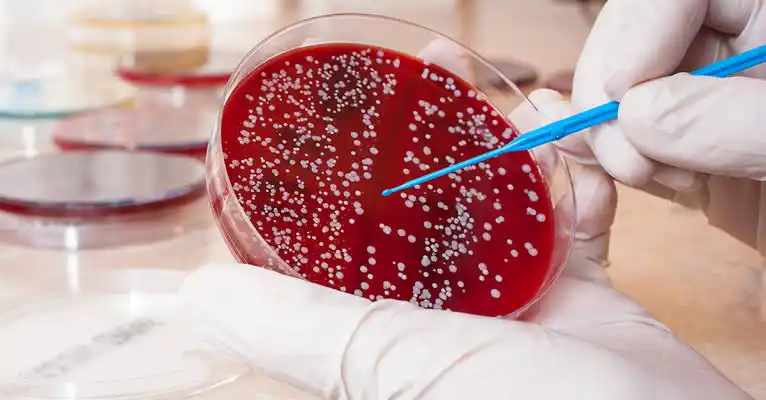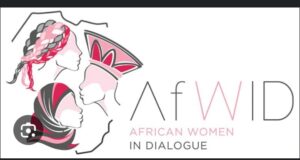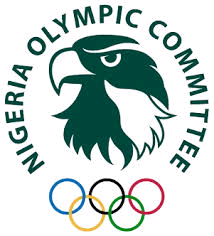Curbing cervical cancer through HPV vaccination

In grappling with numerous healthcare challenges that measures that can save lives cannot be overstated.
One of the most dangerous health conditions is cervical cancer, which experts say is preventable and even curable with early detection and treatment.
While the Human Papillomavirus (HPV) vaccine has been available for years, there is still an urgent need to raise awareness about its effectiveness in preventing cervical cancer among young girls.
Health experts say HPV vaccination is preventing cancer-causing infections and pre-cancers.
According to a report by U.S. Centre for Disease Control (CDC), HPV infections and cervical pre-cancers (abnormal cells on the cervix that can lead to cancer) have dropped since 2006.
The HPV vaccines were first used in the United States in 2006.
The health research centre said among teen girls, infections with HPV types that cause most HPV cancers and genital warts have dropped 88 per cent in the U.S.
Similarly, among young adult women, infections with HPV types that cause most HPV cancers and genital warts have dropped by 81 per cent.
In Nigeria, 70,327 women died from cancer in 2018 and cervical cancer was responsible for 14.8 per cent of these deaths, ranking as the second most common after breast cancer.
Most cervical cancer cases are caused by the human papillomavirus, making prevention of HPV infection paramount in reducing the burden of the disease.
The World Health Organisation’s (WHO) List of Essential Medicines and prequalified vaccines, the first HPV vaccine became available in 2006.
As of 2022, 125 countries included the HPV vaccine in their routine vaccinations for girls, and 47 countries also for boys.
In 2018, the WHO called for the elimination of cervical cancer, one of the most common cancers among women worldwide.
In 2020, the 194 member states of the World Health Assembly passed a resolution calling for cervical cancer elimination and adopted WHO’s Global Strategy to Accelerate the Elimination of Cervical Cancer as a Public Health Problem.
The HPV vaccine is an integral part of the World Health Organisation’s (WHO) strategy to eliminate cervical cancer as a public health issue by 2030.
The aim is to ensure that 90 per cent of girls receive the complete HPV vaccines before they turn 15“, say Nigeria Health Watch in a report.
The government of Nigeria announced in 2022, that with support from Gavi, UNICEF, World WHO and other partners it would commence a phased introduction of the vaccine in the country’s routine immunisation schedule in 2023.
The National Primary Health Care Development Agency (NPHCDA) said the first phase of HPV vaccine introduction would commence with 15 states and FCT on September 25.
The states are Abia, Adamawa, Lagos, Akwa Ibom, Bayelsa, Nasarawa, Jigawa, Ogun, Taraba, Kano, Benue, Osun, Federal Capital Territory (FCT), Kebbi, Bauchi and Enugu.
The other 21 states are expected to commence in the first quarter of 2024.
“The introduction of HPV vaccines signifies our commitment to promoting preventive healthcare and empowering our population, especially our young generation, to live healthier lives.
“We recognise the immense value of prevention in reducing the burden on our healthcare system, sparing individuals from unnecessary suffering and ultimately saving lives”, the Executive Director, NPHCDA, Dr Faisal Shuaib, said.
Dr Eduardo Celade, UNICEF Nigeria Chief of Health, said Nigeria has received 6.04 million doses of Gardasil HPV vaccine with the financing support of Gavi while UNICEF handled the logistics, including shipment to Nigeria.
“The target is to reach 12.3 million girls with HPV vaccination,” Celades said, adding “Our target is to reach 5.6 million girls before the end of the year.”
“After doing a massive campaign to reach these girls from nine to 14 years old, then HPV vaccine from 2024 onwards will be routinised,” he said.
He said making HPV vaccination routine in Nigeria would be a game changer, adding that UNICEF was working closely with the NPHCDA and the Federal Ministry of Health and partners like GAVI to actualise it.
He said UNICEF was supporting the 16 states rolling out this year with micro planning, as each state needs to plan how it is going to reach the girls.
According to him, UNICEF will also support community engagement of girls, saying that there was a dual strategy; one targeting girls in schools, and the other girls out of school.
Mrs Jecita Okafor lives at Apo Mechanic Village, Abuja and lost her sister to cervical cancer. Okafor now advocates HPV vaccination after witnessing her sister’s agonising battle with cancer.
She told the News Agency of Nigeria (NAN) that she was optimistic the vaccine could have saved her sister’s life.
“In Nigerian there is often a stigma attached to issues surrounding sexual health and diseases.
“However, it is essential to prioritise the health and safety of young girls by ensuring accessed life-saving measures such as HPV vaccine’’, she said.
Aisha Ahmed, (not real name) was accompanied to Nisa Premier Hospital, FCT, by her supportive parents received the vaccine at the cost of N55, 000.
Ahmed is hopeful that the vaccine will protect her against cancer to help to her achieve her potential in life.
Her story highlights the importance of de-stigmatising vaccinations and fostering a supportive community environment for girls growing up in the country.
Unlike Ahmed, how many parents in the country can afford to pay for their wards vaccinated against HPV?
Dr Matthew Olu, an oncologist, told NAN that HPV vaccine preventable cancer cases have surged in recent years due to the lack of awareness and screening.
“HPV vaccines not only protect against cervical cancer but also help bridge the gap in access to comprehensive healthcare services in Nigeria.
“By making the HPV vaccine available to young women regardless of their socioeconomic backgrounds, the Nigerian government will be demonstrating its commitment to equitable health outcomes for all citizens.
“This initiative can empower young girls and their families, ensuring that they have the same opportunities for a healthy future,” he said.
He said that HPV vaccines can prevent the infection and reduce the prevalence of cervical cancer, safeguarding young girls from potential harm later in life.
One significant challenge in promoting HPV vaccination is addressing the misconceptions that persist among the Nigerians.
Many parents are unaware of the potential long-term implications of HPV infection and the effectiveness of the vaccine in preventing cervical cancer.
Some experts advise that campaigns targeting parents utilising various mediums such as community meetings, radio programs, and social media, can play a vital role in dispelling myths by providing accurate information.
Dr Johnson Longi, a public health specialist working on improving healthcare access and education in rural communities advocates for a comprehensive approach to healthcare delivery.
He said the HPV vaccine should be part of a greater effort to reduce cancer-related mortality and improve overall well-being among Nigeria’s young girls.
Dr Adamu Alhassan Umar, President, Nigerian Cancer Association, reiterates the urgency of HPV vaccination, underlining the devastating impact of HPV-related cancers and the need for early prevention.
Umar said in spite of commendable efforts by the governments and healthcare workers to raise awareness on the importance of these vaccines, some parents still exhibit vaccine-resistance.
He called on Nigerian families to prioritise their daughters’ health by allowing them to receive the HPV vaccine.









